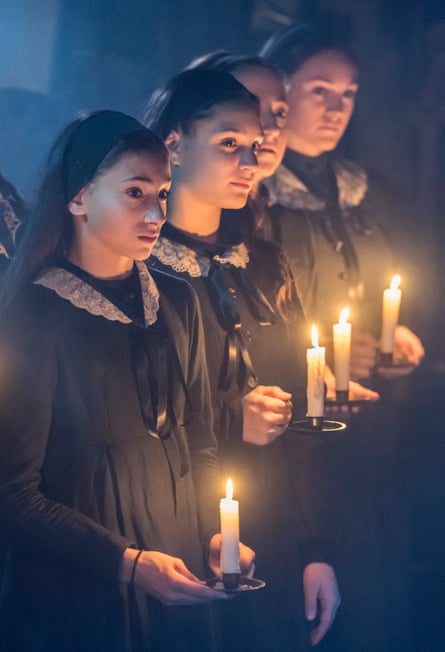Although much-loved and often revived, Fiddler on the Roof has been charged with excessive sentimentality and piety. As the poor Russian-Jewish milkman Tevye attempts to marry off five daughters, several of the songs have the form of prayers, and a startling percentage of the dialogue is delivered upwards.
But, as Trevor Nunn’s magnificent revival amplifies, the show daringly contrasts lightness and darkness. With the Russian tsar’s thugs patrolling the shtetl of Anatevka in 1905, the romantic machinations are shadowed by exile and genocide. In an emblematic moment, a wild wedding party is interrupted by the vicious arrival of a pogrom.

In 1964, when Fiddler on the Roof premiered in New York, many in the city had suffered exile or bereavement through the Holocaust. When a villager excitedly announces plans to “go to Poland”, we know the likely fate of their descendants. Respecting this, Jerry Bock’s score defies generic convention by ending not with a chorus line but a silence, stalling a final tune from the title character.
The terrifying resurgence of antisemitism makes the musical cruelly topical once more, and the final sequence of the villagers fleeing invokes other forced diasporas. Characteristically, Nunn roots the lines in vivid social and physical detail. The entire canopy and panoply of a Jewish wedding are crammed on to the Menier’s tiny stage for Sunrise, Sunset, which, like the refugees’ valedictory anthem Anatevka, is sung as a shivery chorale, the 20-strong cast packed in like chess pieces.
The nonsensical word-doodling (“dibba dibba dum”) that Sheldon Harnick’s lyrics give Tevye between verses of If I Were a Rich Man become cries of sciatic pain from his working day. Throughout, Andy Nyman makes searingly real the protagonist’s struggles between tradition and compassion, and perfectly times both the notes and the jokes. As Tevye’s wife, Golde, Judy Kuhn – a welcome Broadway import – also makes her songs into cries from a real life, and shows us that the supposedly patriarchal society was really matriarchal.
Musically, geopolitically, emotionally, this Fiddler raises the roof.
At Menier Chocolate Factory, London, until 9 March.

Comments (…)
Sign in or create your Guardian account to join the discussion